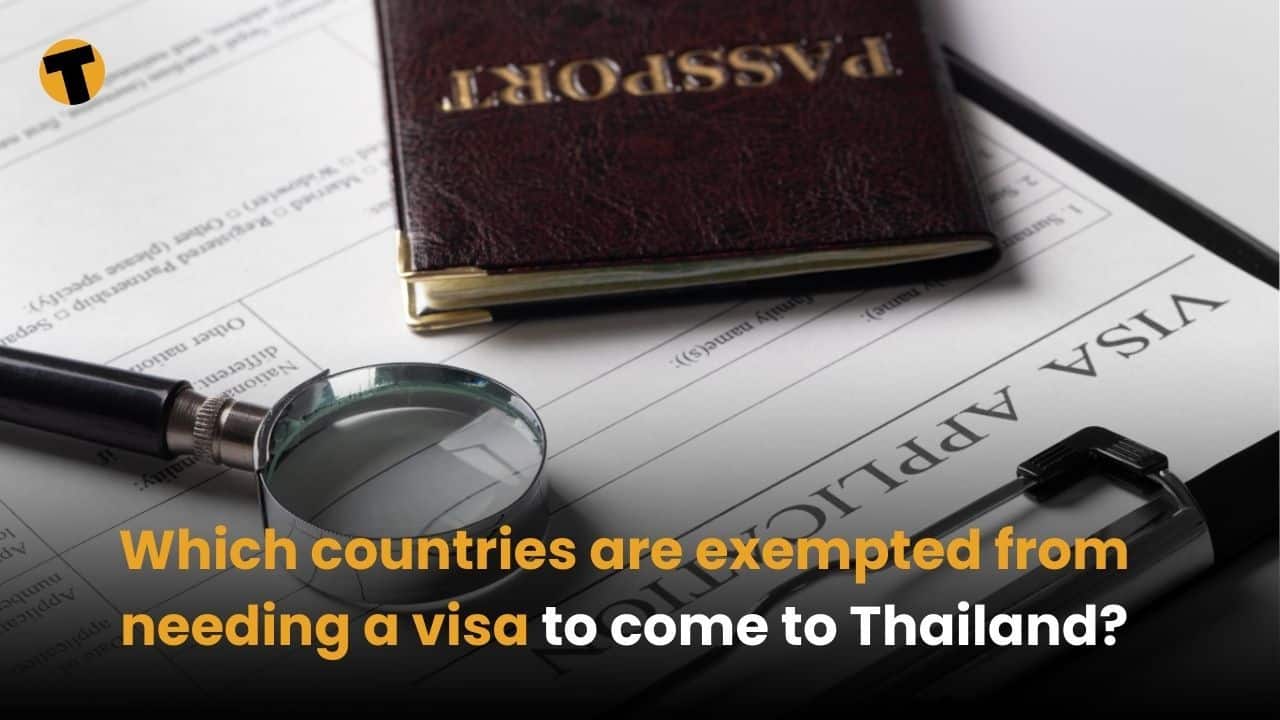Which countries are exempted from needing a visa to come to Thailand?
Key updates on who can enter Thailand without paperwork and how long they can stay

When planning a trip to Thailand, one of the first questions many travellers ask is, “Do I need a visa to enter?” The answer depends on your nationality and the length of your intended stay. As of 2025, Thailand has updated its visa exemption and tourist visa policies, aiming to make travel more flexible and attractive for a wider range of visitors.
Here’s what expats, tourists, and long-term visitors should know about the visa exemptions in place this year.
Visa exemption overview
Under the visa exemption scheme, passport holders from selected countries can enter Thailand for tourism purposes without needing to apply for a visa in advance. These travellers are granted a specific period of stay depending on their nationality.
According to Thailand’s Ministry of Foreign Affairs update for 2025, here are some examples of the countries whose citizens are visa-exempt and their permitted durations of stay:
| Country | Duration of Stay |
|---|---|
| United States | 60 days |
| United Kingdom | 60 days |
| Australia | 60 days |
| Germany | 60 days |
| France | 60 days |
| Russia | 60 days |
| China | 60 days |
| India | 60 days |
| Kazakhstan | 60 days |
| Taiwan | 60 days |
*These 10 countries are examples of the full 93 in the list. You can see the full list on this website.
This list reflects the updated visa exemption extension that was introduced in June 2024 and remains in effect through 2025. Before this update, the exemption period for many of these countries was limited to 30 days.
Key Conditions for visa-exempt entry

Even if your country is on the visa exemption list, there are a few conditions you must meet:
- The purpose of the visit must be tourism
- You must present a valid passport with at least 6 months’ validity
- Proof of onward or return travel is often requested
- Proof of accommodation and sufficient financial means may also be required
The entry is granted at international airports and most land border checkpoints. However, if you’re entering through land borders, your number of entries per year may be limited unless you have a visa or a residency status.
Visa Extension Options
If you enter Thailand visa-free and decide to stay longer, you may apply for a 30-day extension at any Immigration Office in Thailand for a fee of 1,900 baht. This means visa-exempt travellers could potentially stay up to 90 days in total, depending on their initial entry and extension approval.
Countries requiring a visa on arrival or a pre-approved Visa
While the focus here is on visa-exempt countries, it’s worth noting that not all travellers are eligible. Citizens from countries not on the exemption list must apply for a Tourist Visa or a Visa on Arrival (VoA), depending on their country of origin.
For example:
- Visa on Arrival (VoA) is available to citizens from 19 countries, including Bhutan, Bulgaria, and Romania, for a stay of up to 15 days.
- Tourist Visas (Single Entry or Multiple Entry) are required for nationals of other countries not included under the visa exemption or VoA.
Special bilateral agreements
Thailand has special agreements with some countries, allowing for longer stays beyond the standard exemption. For instance:
- South Korean and Japanese citizens may stay for 90 days visa-free due to bilateral agreements.
- Citizens of ASEAN countries (such as Singapore, Malaysia, and the Philippines) are also granted 30 to 90 days visa-free, depending on the agreement.
- Citizens of Myanmar and Cambodia are granted to stay 14 days visa-free in Thailand.
These agreements are separate from the general visa exemption scheme and are subject to change depending on diplomatic relations and domestic policies.
What about long-stay travellers?

If you’re planning to stay in Thailand for more than 60 to 90 days, a tourist visa or other long-stay visa (e.g., Education, Marriage, Retirement, or LTR visa) will be required. A visa exemption is not renewable indefinitely and cannot be used to live in Thailand long-term.
Thai immigration has been tightening rules around border hopping, the practice of exiting and re-entering to reset visa exemption periods. Frequent travellers may be questioned or denied entry if suspected of abusing the visa exemption system.
Thailand continues to welcome international visitors with simplified visa exemption rules and extended stays for many countries. Whether you’re planning a two-week beach escape or an extended tour of the Kingdom, make sure you understand your visa status before you fly.
Remember to check for up-to-date announcements from the Thai Ministry of Foreign Affairs or your nearest Thai Embassy, as rules can change depending on regional agreements or political decisions.
With these updates, travellers from key countries now have more flexibility and fewer headaches when visiting Thailand.
The Thaiger key summaries
- Citizens from many countries can enter for 60 days visa-free, with extensions available for an extra 30 days.
- Eligibility depends on nationality, travel purpose, passport validity, and proof of onward travel.
- Longer stays still require proper visas, and frequent border runs may lead to questioning or entry refusal.
Latest Thailand News
Follow The Thaiger on Google News:


























